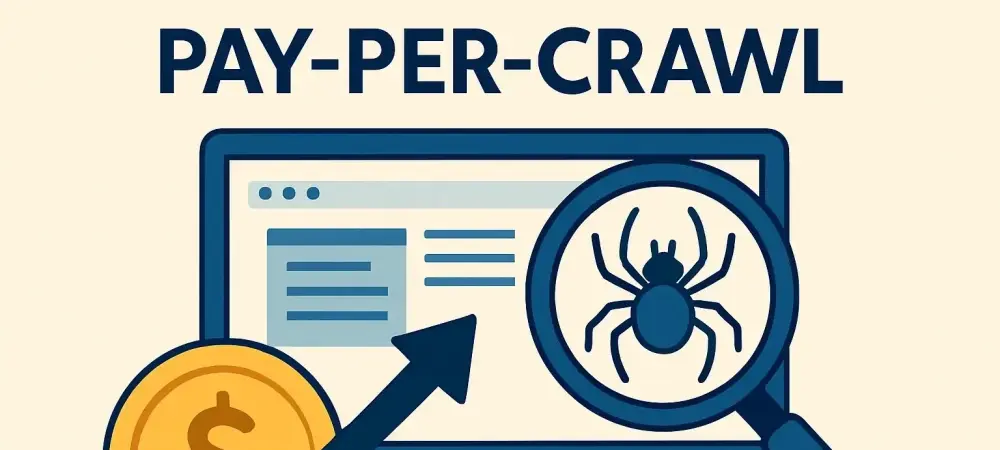In an era where artificial intelligence continues to revolutionize content accessibility, Cloudflare’s introduction of a pay-per-crawl system emerges as a pivotal shift in how web data is monetized and accessed. This innovative approach targets AI crawler access, transforming the digital landscape by introducing options for content publishers to regulate and potentially capitalize on AI interactions with their websites. As the internet increasingly becomes a vital resource for generative search technologies, this move by Cloudflare redefines digital content valuation. The system’s default setting blocks AI crawlers from newly added domains, compelling publishers to decide on the extent of access they wish to grant—whether unrestricted, fee-based, or entirely denying access. These changes not only highlight the relationship between digital publishers and AI frameworks but also mark a significant departure from the traditional model where AI companies accessed web content freely, often benefiting disproportionately in the process.
Impact on SEO and Digital Publishing
The ripple effects of Cloudflare’s pay-per-crawl system are keenly felt across the spectrum of SEO and digital publishing. As notable media organizations such as Condé Nast and The Atlantic explore the system’s potential, a profound discussion has unfolded around the impact on web traffic dynamics and search engine optimization. For SEO professionals, the stakes are particularly high; the introduction of this monetization model requires meticulous adjustments to ensure that their content remains visible in AI-driven search engines. Reactions among SEO experts are mixed. Some express apprehension over losing valuable AI-generated visibility, which has been a boon for increasing audience reach. Concerns focus on inadvertent settings that could block AI crawlers, thereby diminishing visibility unless companies invest in enabling access.
Conversely, others argue that this development heralds a long-needed rectification in how content value is appreciated. By reclaiming control over how and when web content is accessed by AI crawlers, publishers stand to regain agency in an ecosystem that has increasingly skewed toward AI technology profits. This resetting of digital economics potentially offers a fairer distribution of benefits where content creators can achieve equitable compensation for their work. The dialogue introduces a broader understanding of the evolving dynamics between SEO techniques and AI advancements, urging content providers to adopt a strategic alignment with economic realities.
Challenges and Opportunities for Site Owners
Cloudflare’s innovative system presents both complexities and opportunities for site owners who manage crawler access settings. The necessity for careful configuration of these settings is underscored by the potential implications for visibility in AI-powered search tools. Site owners may experience a decline in reported AI traffic, leading digital analytics experts to recommend proactive management of bot access settings via Cloudflare’s dashboard. Himanshu Sharma, a digital analytics consultant, emphasizes adjusting the “Block AI Training Bots” setting to avoid undesired impacts. Such prudent configuration will likely enhance a site’s interaction with AI technologies while averting unintended blockages that could obscure content from valuable AI-driven channels.
Cloudflare envisions a future with expanded integrations and enhancements to bot management tools, including dynamic and granular pricing models. These anticipated upgrades promise more precise control over exposure and potential financial opportunities tied to crawler interactions. By navigating the intricacies of managing AI access, site owners can leverage this new landscape to secure both visibility and revenue opportunities. As evolving technology challenges traditional notions of content value and accessibility, strategic foresight and management become crucial for adapting successfully to a future where AI is increasingly integral to web interactions.
The Evolving Landscape of Digital Content
In today’s rapidly evolving digital age, artificial intelligence is playing a transformative role in content accessibility. Cloudflare has introduced a game-changing pay-per-crawl system, marking a significant shift in the monetization and access of web data. This innovative approach specifically targets AI crawler access, reshaping the digital landscape by giving content publishers the ability to control and potentially monetize AI interactions with their sites. As the internet becomes an increasingly crucial resource for generative search technologies, Cloudflare’s initiative redefines the value of digital content. By default, this system blocks AI crawlers from accessing new domains, prompting publishers to choose how much access to grant—whether entirely open, fee-based, or blocked altogether. These changes highlight the evolving relationship between digital publishers and AI systems, representing a clear departure from the traditional model where AI companies accessed web content freely, often reaping the benefits without sharing them equitably.

